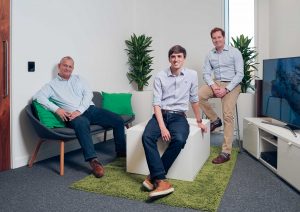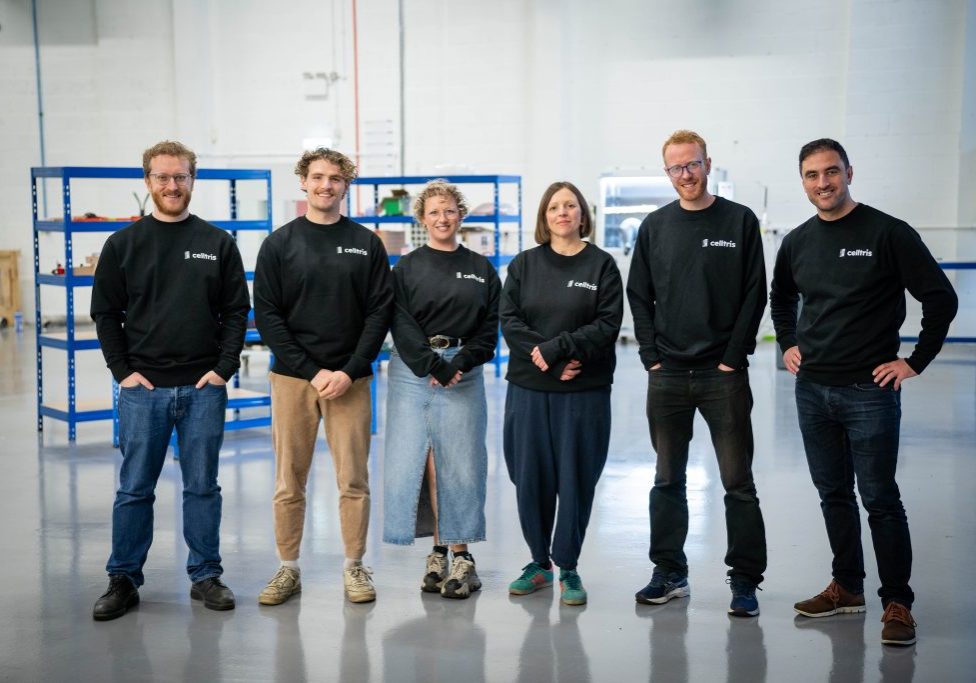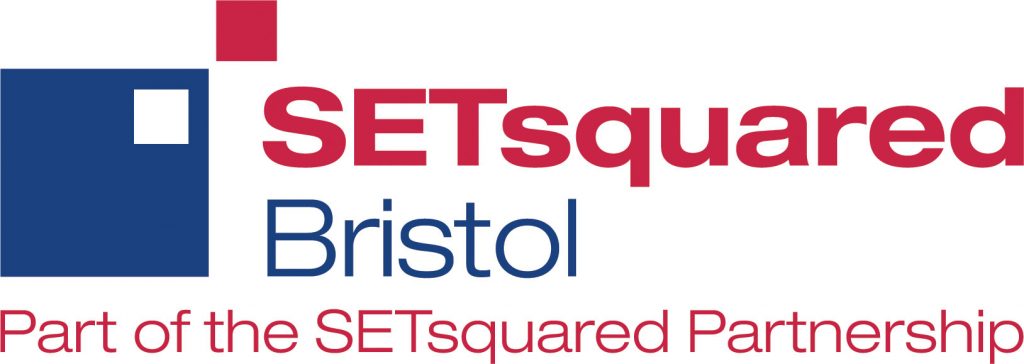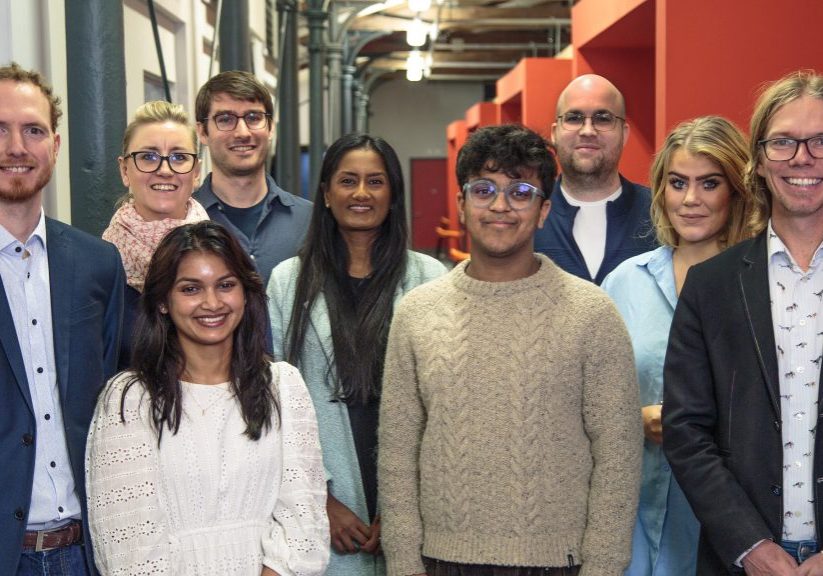Case Study – Ultrahaptics: Culture, Skills and Talent
Posted by
SETsquared Bristol
To help our aspiring entrepreneurs and future SETsquared Bristol members, we are showcasing a number of case studies demonstrating the breadth of tech at SETsquared Bristol and what it takes to achieve success.
SETsquared alumnus, Ultrahaptics, is one of the region’s biggest success stories. Founded in 2013 the company uses haptic technology to create mid-air tactile sensations without the need for controllers or wearables. Now a bustling scaleup employing over 100 people across three international offices, the team at Scale-up Generator sat down with CEO, Steve Cliffe to talk talent.
What are the biggest challenges you’ve faced in your growth with building and developing the right team?
Without a doubt, communication is always going to be a challenge to growing companies. We’ve gone from a few people in one room in the Engine Shed to international offices and more than 100 people. In terms of communication, and the flow of information, that means we’ve gone from knowing what everybody had for breakfast, to not even knowing which time zone someone’s in.
Technology businesses thrive on collaboration, and collaboration is only possible through open, clear and two-way communication. Bringing and challenging ideas.

With what you’ve learned as you’ve grown what would you do differently with your team?
We hire on fit, but we also hire people who have relevant experience. And that applies to everyone, including myself. I’ve been in technology businesses for over 30 years now, from corporates to start-ups. I can’t say I’ve seen it all, but I’d like to think that I’ve seen enough to know how to weather a storm and build for scale.
I’m always looking around the corner. One of my colleagues joked the other day that I’m ‘playing chess’; always trying to make sure I know my next three moves. During my career, I’ve learned that you have to be ready before the cracks begin to show.
What have you done with your team that you think has the best return on investment?
It’s a simple thing, but the kitchen is at the heart of our office. We’ve invested in a bright, open kitchen, with large benches to accommodate the whole team. The ROI has been fabulous. No one is hunched over their desk nibbling on a sandwich at lunchtime. The kitchen becomes a buzzing hub of discussion, debate, laughter, and sharing. We host our employee all-hands meetings there (which we film to share with our international offices). We share our bake-off successes (and failures!) together and we have a monthly themed pot luck lunch club.
But how do we realise the return? When everyone talks to each other, barriers come down, issues are resolved, conflicts are debated, information is shared. It is invaluable to the business to have a marketeer sit next to an engineer, or someone in business development sit next to finance.
How important is it that you have the right talent on your Board as well as staff?
I’ve always believed in ensuring I have the strengths in our Board and our advisors that we don’t yet have ourselves, and to hire in experience too when we need support to step up.
Make time to plan ahead. I can’t have things going wrong and I know that today’s decisions will affect the whole company’s outcome. That’s why I’ve learned to listen and learn from others and to ensure we have a succession plan for everyone.
Tom Carter has created a great technology that sits at the heart of Ultrahaptics. It will be big and we have a duty to plan for the potential. To ensure we have advice on scale, 40% of our directors have been CEOs of FTSE 250 companies. With their help we have ensured that we focus on the alignment of board directors, shareholders and managers. We’ve learned that everyone has to be on the same page from the beginning. That means sometimes being bold and having difficult conversations; asking people what they want out of this and how are we going to get to where we want to be?

Ultra Haptics | Bristol
Photography by Gareth Iwan Jones www.garethiwanjones.com
Are there any generational challenges when it comes to finding people with the right skills?
Most of our employees today are millennials. We had hired a large engineering team of over 60 people, but nobody really knew how to write the sort of software that would be acceptable for a car company. So, we brought in Barry Dennington, a very experienced engineering manager, to help turn a bunch of very bright young people into a crack engineering squad.
We want to sell software and products to the automotive sector, so we need to have the processes and behaviours that work for that industry.
Do you consider your investors to be part of the talent picture?
We have focused on bringing in patient investors in high tech businesses. We need people who want to be with us for the journey, not just for our Series A funding. That has required focus on understanding them. Who are they? Will they come on the journey? How to plan the evaluation, investment and exit route for them too. People at each stage must be able to get a return.
It’s vital to make sure that your articles of association and your investment agreements allow you to do what you want. And I’ve learned that you shouldn’t be afraid to swap out shareholders as your business evolves so that you have the right mix of challenge and support to enable you to continue to grow.
What are your top tips on building a culture that you would advise people to do?
Culture is all about the symbols, systems and behaviours that are the norm in your organisation. It doesn’t just happen. I’ve already mentioned some of the things we’ve done to establish our culture in terms of hiring to “fit” and the way we encourage openness and collaboration.
The behaviours we chose to adopt are vital. One of our employees recently said to me that they had been here for two years now and have never been shouted at once. That doesn’t mean we don’t get frustrated from time to time, but we are focused on learning and moving forwards with no blame for mistakes. I’ve learned that the leaders are so important in establishing the culture of an organisation. Like it or not, everyone follows what you do. I believe it is so important to manage how we behave, from the top down, to help give a strong message about our culture and how we sustain it.

What new initiatives are you planning in the next 12 months around skills and talent?
We are continuing to grow and the market for talent is always competitive. I believe our open culture will help, but we also have to be clear on the opportunities we can offer for skills development and to join a leader in this emerging sector of immersive technologies.
Recently, for example we have carried out an extensive Talent and People exercise to formalise how we measure performance and created a total reward framework for employees to be recognised for their contribution and see a clear path to personal growth within the organisation. We want to make sure that we reward employees and recognise different growth aspirations. Some employees want to expand their responsibilities, to say, managing a team; others want to specialise in a particular area and become a world-leading expert in a narrow field; and others just want to be top of their game in their current role. All of these are completely legitimate aspirations and we want to make sure that all the individuals striving for them are fulfilled, supported and rewarded for their efforts.
What tools, people or services would you recommend to others as they look to scale in relation to developing skills and talent?
Networking and listening to your friends and trusted contacts is always important. Ultrahaptics came out of the Engine Shed as part of the SETsquared partnership, which has helped to set us on our growth trajectory and we continue to benefit from their ideas, their contacts and their initiatives. Greville Commins, entrepreneur in residence, at SETsquared has been a fantastic supporter, advisor and networker on our behalf.
Every team, and our new international offices, are new businesses in their own right and have new colleagues working in them. So we continue to value the support we receive and the ideas and contacts that are still available to us.
It’s important to find advice, ideas and support where you can from people who have done it before and who can understand how to boost your own thinking and doing. And even if you can’t find, or fund, the services you think you need, there are always good books. It was so re-assuring to read Carolyn Taylor’s book on culture: Walking the Talk, which gave us confidence in our approach and some great new ideas to add to our thinking on how to sustain our great culture at Ultrahaptics.
Discover more of the companies SETsquared incubate here and sign up to the monthly SETsquared newsletter to keep up with news, events, opportunities and more.
Recent News, Blogs and Stories



